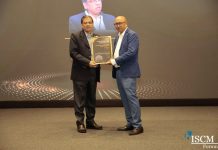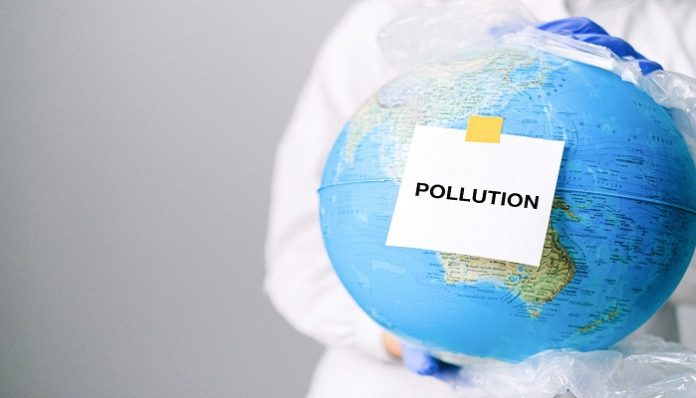Advertisement
“We make plastics sustainable by ensuring biodegradation after the usage life ends” – Radu Baciu, Symphony Group Technical Director
Symphony Environmental Technologies, a UK headquartered company, invented a ground-breaking and scientifically proven d2w additive technology that makes plastics biodegradable. Offering a futuristic and globally trusted solution to one of the world’s most severe environmental problems of non-biodegradable plastic waste, Symphony Environmental’s d2w additive can be used in plastics manufacturing to convert end-of-life plastics to nothing more than a soil component that is naturally bio-assimilated by bacteria and fungi. This novel innovation is a paradigm shift, making plastics behave green like any other biodegradable substance on the planet. The d2w technology has been studied for over 25 years and has passed heavy metal analysis and Organization for Economic Co-operation and Development (OECD) eco-toxicity tests.
To understand more on this and also on tackling the gargantuan problem of plastics waste, Chemical Industry Digest had an email interaction with Radu Baciu, Technical Director of Symphony Environmental Technologies, whose views are presented here.
 Chemical Industry Digest (CID): Despite intensified R&D into biodegradable plastics, reportedly it has not made much headway. We are talking of polymers created biodegradable ab initio (virgin polymers). There are only few polymers available such as PLA and that too not as versatile in applications like the current polymers.
Chemical Industry Digest (CID): Despite intensified R&D into biodegradable plastics, reportedly it has not made much headway. We are talking of polymers created biodegradable ab initio (virgin polymers). There are only few polymers available such as PLA and that too not as versatile in applications like the current polymers.What is the current status? How many such biodegradable polymers are available in the international market today? And do they have applications across the board from household, construction, automotive, industry and engineering sectors?
Radu Baciu (RB): Biodegradable plastics are in use in many countries as sustainable solution to single use plastics. In India, the definition of Biodegradable Plastics was included in PWM Rules in February 2022. The tentative provisional standard for a assessment of biodegradability of plastics issued by BIS was first time mentioned in PWM Rules in the notification issued by MoEFCC on July 07th, 2022. This tentative provisional standard of BIS is called IS 17899 T: 2022. It is currently under review. Testing of biodegradable plastics is a long duration testing and may take about 2.5 years. Testing of all the samples submitted by producers is underway and therefore no producer in India has received certificate from CPCB yet. This is reason of biodegradable plastics have not made much headway yet.
PLA based materials come under the category of compostables and not biodegradable plastics.
In international market there are several suppliers of biodegradable additives. Addition of additives in polyolefin based polymers makes it biodegradable. The applications are possible in household consumer packaging, automotive industry, cement industry, iron and steel, healthcare, HORECA, agriculture, consumer durables, pharmaceuticals and bulk storage FIBC bags etc.
CID: As mentioned, one approach is developing polymers, which are ab initio biodegradable. Now we understand that your company Symphony Environmental Technologies has developed a pathbreaking technology by inventing additives that make existing non-biodegradable polymers, biodegradable. Can you please elaborate on this. Does it make plastics waste only biodegradable or even the ‘to be used polymers’ like PVC, PP, PE etc biodegradable? And how effective are these ones made biodegradable for various applications?
RB: We make plastic sustainable by ensuring 100% biodegradation after the usage life ends. This is done by adding 1% d2w® in the form of masterbatch at the time of manufacturing. The plastic manufactured with d2w® additive also retains 100% recyclable property. Our biodegradable technology works with polyolefins like LDPE, LLDPE, HDPE, PP BOPP. The plastics products could be made with extruded films, blow moulded, injection moulded or thermoformed using d2w additive. Our d2w® additive technology makes consumer plastic waste biodegradable in 17 to 22 months without leaving any heavy metals, microplastics or eco-toxicity. It has passed the globally acceptable ASTM D6954 testing with over 90% biodegradation in 180 days. Testing as per IS 17899 T: 2022 is underway in BIS accredited laboratory in India.
CID: As your additive (d2w) is just introduced in India, how do you propose to market in India, particularly in terms of novel concept introduction and applications? Can manufacturers of polymers like PVC, PE, PP etc directly use it and provide such polymers, now made biodegradable, for processing?
RB: Symphony Environmental India is operational since October 2021 with office based in New Delhi. We are manufacturing d2w additives in India. We have a large distribution network available PAN India.
CID: MNCs, into plastics, doesn’t sound very optimistic on biodegradable plastics. They were emphasising more on developing the circular economy for plastics, totally concentrating on making them more recyclable. What are your views on this? To what extent is this possible considering innate human nature of ‘use and throw anywhere’, and the foolproof ‘collections and return to source’ system for this?
RB: Plastic packaging materials made with d2w biodegradable additive have 100% recyclable property while biodegradable. These products can recycled and made into other useful products after the end of usage life therefore meets the requirement of circular economy. It has passed the eco—toxicity testing like OECD 207 and OECD 208. Littering must be avoided but in case a packaging items ends up becoming single use plastic then products made with d2w will biodegrade itself safely without leaving at eco-toxicity.
CID: What do you suggest are workable solutions with all existing options in terms of the polymer materials, its versatile and widespread applications and innate human nature and inadequate collection systems to address the problem of mounting plastics wastes in our environment?
RB: Plastic is a versatile material and it can be recycled and re-used repeatedly. It is not the fault of plastic material but ignorance and irresponsible conduct of humans and lack of infrastructure to effectively and efficiently recycle and re-use the plastic materials.
The workable solutions would involve the following:
- Segregate solid waste at the origin
- Do not litter
- Deposit recyclable waste in a responsible way
- Reduce the use of packaging materials
- Reuse all the materials as much as possible
- Adopt the sustainable technology solutions
- Do not delay and adopt globally acceptable testing standards
- Educate our children from early age to become responsible citizens. Do not litter and responsibly discard the solid waste so that organic wet waste can be converted into compost and recyclable waste gets segregated so that it can get reused by converting into other useful products.
 Chemical Industry Digest (CID): Despite intensified R&D into biodegradable plastics, reportedly it has not made much headway. We are talking of polymers created biodegradable ab initio (virgin polymers). There are only few polymers available such as PLA and that too not as versatile in applications like the current polymers.
Chemical Industry Digest (CID): Despite intensified R&D into biodegradable plastics, reportedly it has not made much headway. We are talking of polymers created biodegradable ab initio (virgin polymers). There are only few polymers available such as PLA and that too not as versatile in applications like the current polymers.
































